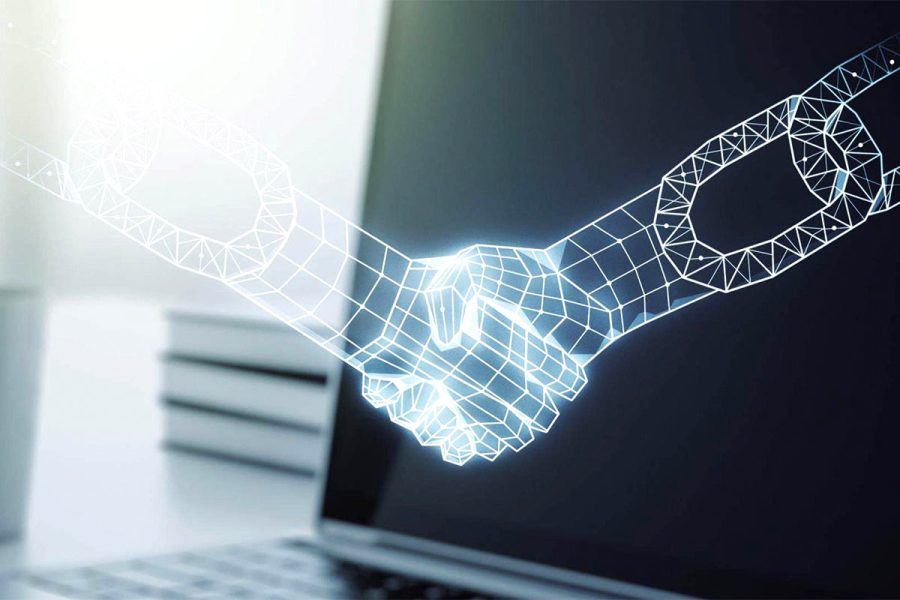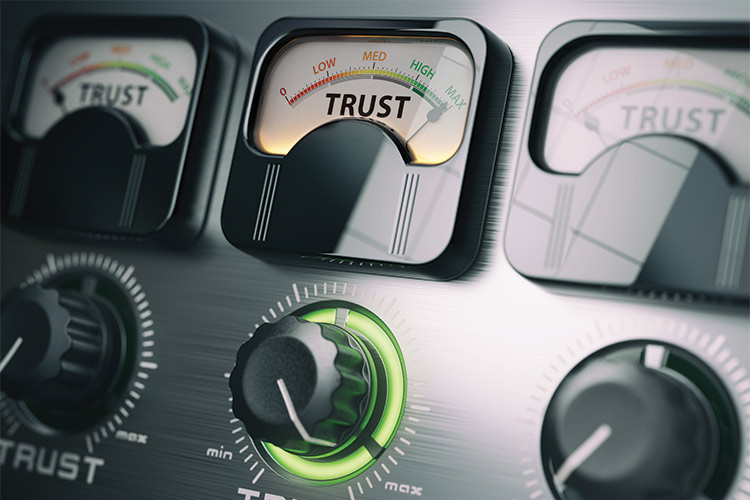The World Economic Forum brought together representatives of the world’s largest technology and commerce companies, including Apple, Microsoft, Google, Amazon, Mastercard, Walmart, IKEA, PayPal and others, along with representatives of the governments of the US and European countries, to restore the shaken digital trust
Today, there is no doubt, more than ever before, it is extremely important for every citizen, every consumer, to be sure of the reliability of the digital services and digital products they use every day in their homes, workplaces and in all public spaces. Previously, there was not much thought about it, little was known and talked about cyber attacks, and then they became a reality in the past two or three years. But even then, the issue of digital security and digital trust did not gain much importance, because it was understood that technology is unreliable, that malfunctions happen and that the common man does not have to protect his data, because “he really has nothing to hide”. Citizens and consumers agreed to all kinds of surveillance, gave and left their data to anyone who asked for it, unaware of the possibility of misuse. Only when the public is more aware of the risks of cyber security breaches and the unethical use of digital technologies, has the issue of digital security and digital trust received the attention it deserves.
TRUST IN SCIENCE AND TECHNOLOGY IS FALLING
Today, many controversies are associated with digital technologies – what is the purpose of artificial intelligence, what can the connection of devices lead to, what is the security of personal data, how reliable is algorithmic predictions – which undermine citizens’ trust in modern technologies at an unprecedented speed. Also, numerous studies register a decline in trust in science and technology from year to year, but at the same time, there is an accelerated growth in the number of users of modern technologies, as well as the percentage of people who rely on digital networks.
To reverse this alarming trend, the World Economic Forum gathered representatives of the world’s largest technology and trade companies, including Apple, Microsoft, Google, Amazon, Mastercard, Walmart, IKEA, PayPal and others, along with representatives of governments from the US and European countries.

“Digital trust is the expectation of individuals that digital technologies, and the services and organizations that provide them, will protect the interests of all stakeholders and support societal expectations and values,” according to a new World Economic Forum report. The report “Earning Digital Trust: Decision- Making for Trustworthy Technologies” written in collaboration with Forum partners Accenture, KPMG and PwC, describes how linking cybersecurity, privacy, ethics and other business functions can restore citizens’ trust in technology. Citizens and consumers expect companies and technology creators to take seriously their responsibility to protect privacy and use data responsibly. Those companies that cannot meet this challenge, it was concluded, will have problems in business.
COMPANIES ARE ALREADY LOSING A LOT OF MONEY
PwC recently reported that only 10% of executives show a willingness to comply with cybersecurity transparency requirements, while Accenture indicated that a growing lack of trust cost US organizations $756 billion in 2017 alone, and that today more than 76% of CEOs say that citizens’ trust is crucial for business competitiveness. KPMG said that increased trust can lead to better profitability, but at the same time more than 75% of executives believe that new technologies, such as artificial learning and machine learning, are bringing cybersecurity and ethical issues to the fore.
Due to the weakening of digital trust, companies are losing a lot of money, and what is even more alarming, this technological mistrust spills over into all social institutions. Unless the creators of the technology begin to earn trust, this trend will continue.
McKinsey found that 85% of consumers surveyed want to know a company’s data privacy policy before making a purchase, while 72% want to know an AI company’s policy. After all, where companies are unable to produce technology that meets the expectations of consumers and citizens, they can no longer expect widespread support.
Jeremy Jurgens, Director General of the World Economic Forum and Head of the Center for Cyber Security, believes that the issue of developing reliable technologies is a matter of decision and that the responsibility for this lies with leaders in all sectors and industries. It is for this reason that he believes that one of the tasks of the World Economic Forum is to help leaders make the right decisions that lead to the introduction and application of more reliable and responsible technologies.
RELIANCE ON TECHNOLOGY IS IMPERATIVE
“The most important decision we can make in the 21st century is whether we will work together to build trust, or whether we will watch innovations fail because they are not used.” By focusing on the values and expectations of individuals, devoting ourselves to safety and reliability, accountability and oversight, inclusive, ethical and responsible use of technology, we can make the technology we develop more reliable,” said Daniel Dobrygowski, Head of Governance and Trust, World Economic Forum).

Forum participants agreed that the introduction of reliable technology should be the goal of all organizations that treat their work in a responsible manner.
“I am happy that as a member of the Board of Directors I was able to introduce Microsoft to the conclusions and help my company in aligning privacy, digital security and artificial intelligence. The findings from the World Economic Forum will help companies and other organizations gain digital trust,” said Julie Brill, Chief Privacy Officer, Corporate Vice President, Microsoft.
Judging by the dominant tone from the Forum, there is no doubt that it is in the interest of every company and organization to increase the level of digital security, because it provides it with a good reputation. In fact, it is clear to everyone what would happen if someone compromised the data security of a large digital service provider or caused a stoppage in its work of just a few minutes. This, in addition to enormous financial damage, could cause unfathomable consequences for reputation and reputation if the confidentiality of certain data was threatened or if certain databases fell into the wrong hands.
CONSUMER RIGHTS COME FIRST
A high level of digital security, i.e. paying great attention to the protection of data of consumers, clients, citizens or patients indicates high standards of control. This avoids the retroactivity of investments in eliminating defects and spoiling a good reputation if it existed before. And Nuala O’Connor, Senior Vice President, General Counsel, Digital Citizenship at Walmart, believes that improving digital trust is vital to restoring citizens’ and consumers’ trust in technology.
“Without trust in digital systems, the financial services ecosystem we have today could not exist. The Forum’s Digital Trust Initiative plays a key role in defining the importance of trust in the digital world,” said Ajai Bhalla, President, Cyber and Intelligence Solutions, Mastercard.

Helena Leurent, general director of Consumers International, believes that consumer trust is built when companies put the needs and rights of their consumers first, before their own interests.
“As a champion of consumer rights around the world, Consumers International is delighted to be part of the Digital Trust Initiative, which calls on companies to inform and empower consumers.”
TRUST MUST BE EARNED
Users of technology, all Forum participants agreed, expect companies that provide them with digital services and products to keep and protect their personal data. If a service or product does not work in a predictable, reliable and secure way, users will refuse to support that company.
“IKEA believes that trust must be the basis of our relationship with every consumer, whether it is about our products or the way we store data. Trust has to be earned and we see it as a joint effort. IKEA is a proud partner of the World Economic Forum’s Digital Trust Initiative and we look forward to contributing to the creation of a shared vision of digital trust between citizens, governments and organizations,” said Noža Boujema, Global Vice President, Digital Ethics and Responsible Artificial Intelligence, IKEA Retail.
Citizens and consumers are demanding that companies and technology developers take their values of privacy, data use and inclusion seriously, but unfortunately, companies seem unwilling to provide the assurances that customers, citizens and governments need.
As the general loss of trust in technology threatens to further erode trust in companies and state institutions and institutions, whose relations with citizens increasingly rely on technology, it is necessary to work more intensively on preserving and gradually strengthening trust. Otherwise, if this trend were to continue, the damage would be irreparable and trust would be irretrievably destroyed. Precisely for these reasons, and in order to stop the current free fall of digital trust, the leaders of companies that create and apply digital technologies must make more reliable decisions about these technologies, because the world cannot do without digital trust.